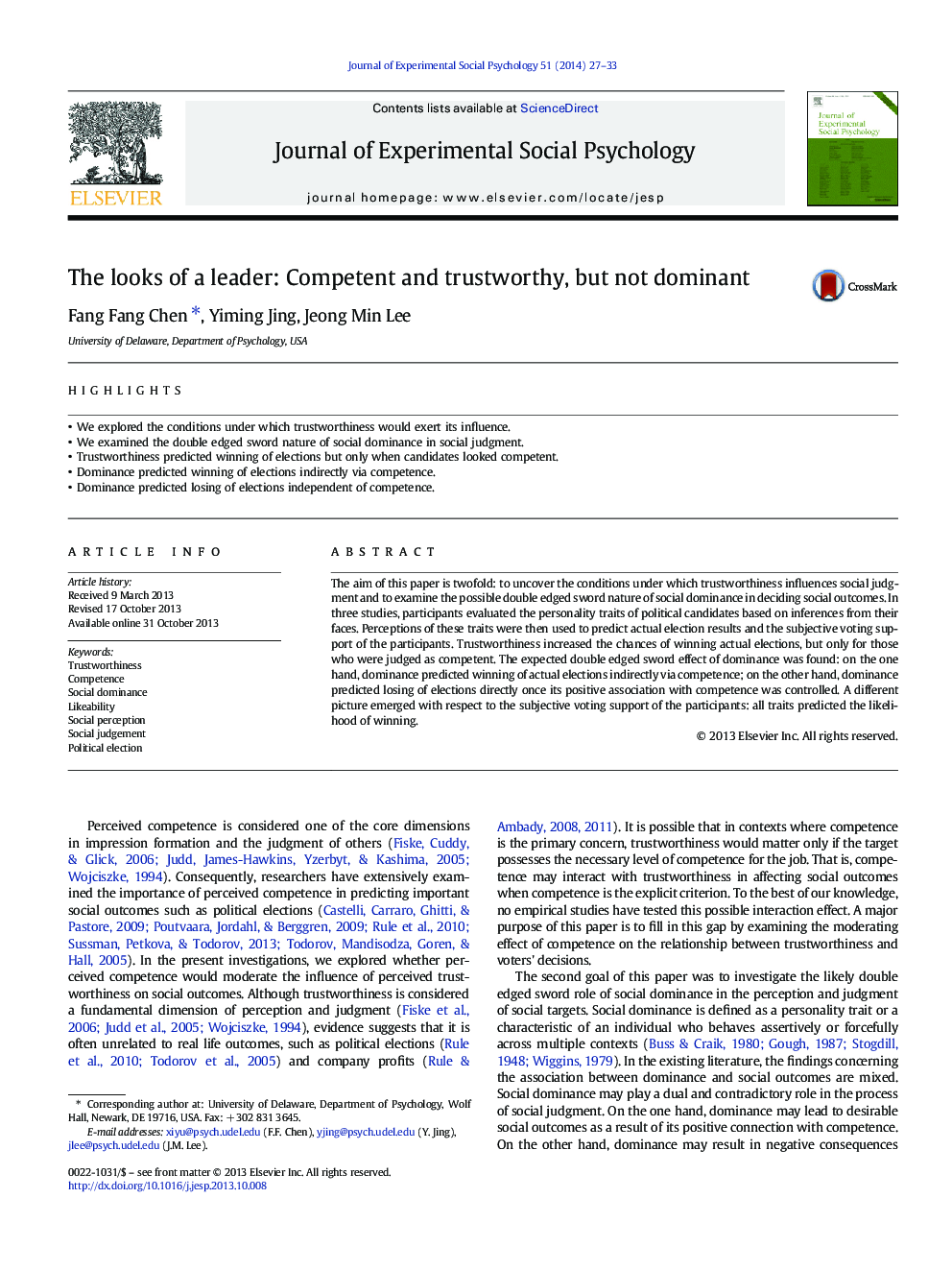| Article ID | Journal | Published Year | Pages | File Type |
|---|---|---|---|---|
| 947771 | Journal of Experimental Social Psychology | 2014 | 7 Pages |
•We explored the conditions under which trustworthiness would exert its influence.•We examined the double edged sword nature of social dominance in social judgment.•Trustworthiness predicted winning of elections but only when candidates looked competent.•Dominance predicted winning of elections indirectly via competence.•Dominance predicted losing of elections independent of competence.
The aim of this paper is twofold: to uncover the conditions under which trustworthiness influences social judgment and to examine the possible double edged sword nature of social dominance in deciding social outcomes. In three studies, participants evaluated the personality traits of political candidates based on inferences from their faces. Perceptions of these traits were then used to predict actual election results and the subjective voting support of the participants. Trustworthiness increased the chances of winning actual elections, but only for those who were judged as competent. The expected double edged sword effect of dominance was found: on the one hand, dominance predicted winning of actual elections indirectly via competence; on the other hand, dominance predicted losing of elections directly once its positive association with competence was controlled. A different picture emerged with respect to the subjective voting support of the participants: all traits predicted the likelihood of winning.
